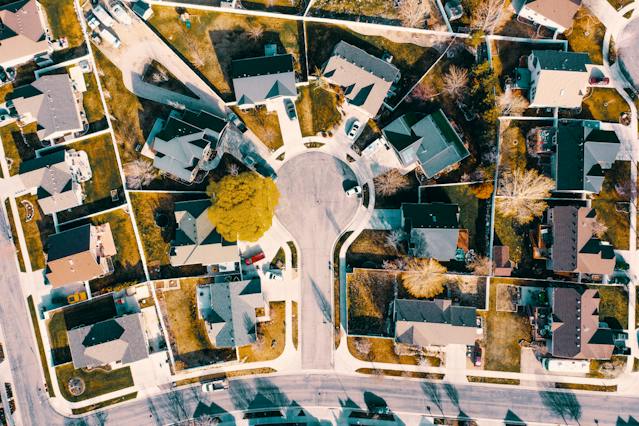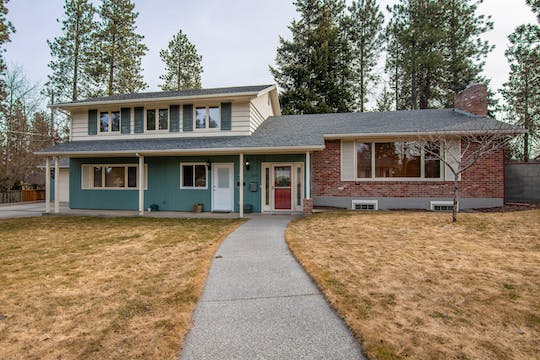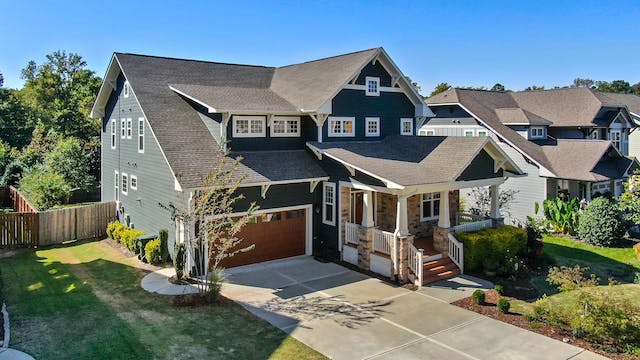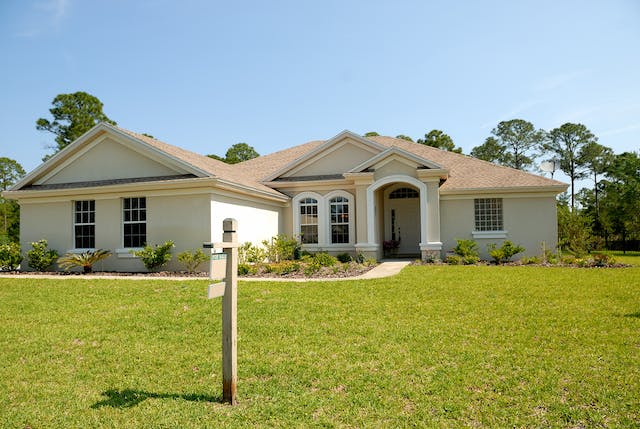Buying a foreclosed home can be a great way to get a deal on a property, but what if you don’t have any money to put down? While it may seem impossible, there are actually several strategies you can use to buy a foreclosed home with no money. In this article, we’ll explore some of the options available to you and provide tips on how to make the process as smooth as possible.
Understanding foreclosure is an important first step in the process of buying a foreclosed home with no money. When a homeowner falls behind on their mortgage payments, the lender may initiate foreclosure proceedings. This can lead to the property being taken back by the bank and sold at auction. While foreclosed homes can be a great deal, it’s important to understand the risks and challenges involved in buying one, especially if you’re doing so with no money down.
Key Takeaways
- Understanding foreclosure is key to buying a foreclosed home with no money.
- There are several financial aspects to consider when buying a foreclosed home.
- Finding and buying a foreclosed home can be challenging, but there are alternative strategies available.
Understanding Foreclosure
When a homeowner fails to keep up with their mortgage payments, the lender may initiate foreclosure proceedings to recover the outstanding debt. Foreclosure is a legal process that allows the lender to take possession of the property and sell it to recover the outstanding debt.
Foreclosure Process
The foreclosure process typically begins when the homeowner receives a notice of default from the lender. This notice informs the homeowner that they are in default on their mortgage payments and gives them a period of time to bring their payments up to date. If the homeowner fails to do so, the lender may then file a notice of sale and schedule an auction.
Pre-Foreclosure
Pre-foreclosure is the period of time between when the homeowner receives a notice of default and when the property is sold at auction. During this time, the homeowner may be able to sell the property to avoid foreclosure. This can be a good opportunity for buyers to purchase a property at a discount.
Auction
The auction is the final stage of the foreclosure process. The property is sold to the highest bidder, and the proceeds are used to pay off the outstanding debt. Buyers should be aware that auction properties are typically sold as-is, and there may be liens or other issues with the property.
Bank-Owned Properties
If the property fails to sell at auction, it becomes bank-owned. These properties are also known as real estate owned (REO) properties. Buyers can purchase these properties directly from the bank, but they should be aware that the bank may have multiple offers on the property.
Government-Owned Properties
Government-owned properties are properties that have been foreclosed on by government agencies such as the Department of Housing and Urban Development (HUD) or the Department of Veterans Affairs (VA). These properties are often sold at a discount and may be a good option for buyers looking to purchase a foreclosed property with no money down.
Understanding the foreclosure process and the different types of foreclosed properties available can help buyers make informed decisions when purchasing a foreclosed home.
Financial Aspects of Buying Foreclosed Homes
Mortgage
A mortgage is a loan provided by a lender for the purpose of purchasing a property. When buying a foreclosed home, it is important to understand the different types of mortgages available. Some common options include FHA loans, conventional loans, and adjustable-rate mortgages. Each type of mortgage has different requirements and interest rates, so it is important to do research and compare options before making a decision.
Down Payment
The down payment is the amount of money paid upfront when purchasing a property. When buying a foreclosed home, the down payment can vary depending on the type of mortgage and the lender’s requirements. Some lenders may require a larger down payment for foreclosed homes, while others may offer financing options with a lower down payment.
Closing Costs
Closing costs are fees associated with the purchase of a property, including appraisal fees, title insurance, and legal fees. When buying a foreclosed home, it is important to understand the closing costs and factor them into the overall cost of the property.
Financing Options
There are a variety of financing options available when purchasing a foreclosed home, including government-backed mortgages and hard money loans. It is important to research and compare options to find the best fit for your financial situation.
No Money Down
While it is possible to purchase a foreclosed home with no money down, it is important to be cautious and understand the risks involved. Some financing options may require a higher interest rate or private mortgage insurance to offset the lack of a down payment.
Overall, when buying a foreclosed home, it is important to understand the financial aspects involved and do thorough research to find the best financing option for your situation.
Finding and Buying Foreclosed Homes
Foreclosed homes can be a great investment opportunity, especially for those looking to buy a home with no money down. Here are some ways to find and purchase foreclosed homes:
Working with Real Estate Agents
Real estate agents can be a valuable resource when it comes to finding foreclosed homes. They have access to multiple listing services (MLS) that list foreclosed properties. Additionally, some agents specialize in working with investors and may have knowledge of upcoming foreclosure auctions. Even commercial development companies can help with this.
Public Auctions
Public auctions are another way to purchase foreclosed homes. These auctions are typically held by the county or state and are open to the public. It’s important to do your research before attending an auction, as the bidding process can be competitive and fast-paced.
Real Estate Investing
Real estate investing is another option for purchasing foreclosed homes. Investors can purchase properties at a discount and then either rent them out or sell them for a profit. It’s important to have a solid understanding of the real estate market and to be prepared for the financial responsibilities of owning a property.
Making an Offer
Once you’ve found a foreclosed property that you’re interested in, you’ll need to make an offer. It’s important to work with a real estate professional who can help you navigate the negotiation process and ensure that your offer is competitive.
Closing the Deal
Closing the deal on a foreclosed property can be a complex process. It’s important to work with a real estate professional who can help you navigate the legal and financial aspects of the transaction. Additionally, it’s important to have financing in place before making an offer, as foreclosed properties are often sold as-is and may require repairs or renovations.
Overall, purchasing a foreclosed home can be a great investment opportunity for those looking to buy a home with no money down. By working with real estate professionals and doing your research, you can find and purchase a foreclosed property that meets your needs and budget.
Risks and Challenges
Buying a foreclosed home with no money down can be a great opportunity for those looking to get into the real estate market. However, it’s important to note that there are several risks and challenges that come with this type of investment.
Competition
One of the biggest challenges when buying foreclosed homes with no money is the competition. Since these properties are often sold at a discounted price, many investors are interested in purchasing them. This can lead to bidding wars and make it difficult to secure a property at a price that is profitable.
Property Condition
Another challenge when buying foreclosed homes is the property condition. Distressed properties are often sold as-is, which means that the buyer is responsible for any repair costs. It’s important to thoroughly inspect the property before making an offer to ensure that the repair costs won’t eat into potential profits.
Legal and Financial Risks
Buying a foreclosed home with no money also comes with legal and financial risks. It’s important to do your due diligence and research the property’s history to ensure that there are no liens or other legal issues. Additionally, investors should have a solid understanding of their financial situation and be prepared for unexpected expenses.
Slow Process
Finally, the process of buying a foreclosed home can be slow. Since these properties are often owned by banks or other financial institutions, the process can be bureaucratic and time-consuming. It’s important to have patience and be prepared for a potentially lengthy process.
In summary, buying foreclosed homes with no money down can be a great opportunity for investors looking to get into the real estate market. However, it’s important to be aware of the risks and challenges that come with this type of investment, including competition, property condition, legal and financial risks, and a potentially slow process.
Alternative Strategies to Buy Foreclosed Homes with No Money
Private Lender
A private lender is an individual or company that lends money to investors or home buyers. Private lenders can be a good option for those looking to buy foreclosed homes with no money. These lenders can provide the necessary funds to purchase the property, and the terms of the loan can be negotiated between the borrower and the lender. However, it is important to note that private lenders may charge higher interest rates and fees compared to traditional lenders.
Crowdfund
Crowdfunding is a relatively new concept where a group of people pool their money together to invest in a project or property. Crowdfunding can be a viable option for those looking to buy foreclosed homes with no money. There are several real estate crowdfunding platforms that allow investors to invest in foreclosed properties. These platforms typically require a minimum investment amount, and the returns on investment vary depending on the success of the project.
Assumable Mortgage
An assumable mortgage is a type of mortgage where the buyer takes over the seller’s existing mortgage. This can be a good option for those looking to buy foreclosed homes with no money. If the foreclosed property has an assumable mortgage, the buyer can take over the existing mortgage and avoid having to come up with a down payment. However, it is important to note that assumable mortgages are not very common and may be difficult to find.
Home Equity Financing
Home equity financing is a type of financing where the borrower uses the equity in their current home to finance the purchase of another property. This can be a good option for those looking to buy foreclosed homes with no money. However, it is important to note that home equity financing may require a good credit score and a certain amount of equity in the borrower’s current home.
Overall, there are several alternative strategies for buying foreclosed homes with no money. It is important to do thorough research and consider all options before making a decision.
Conclusion
Buying foreclosed homes with no money can be a challenging task, but it is possible with the right approach and mindset. As discussed in this article, there are several benefits to buying foreclosed homes, including lower prices and potential for profit.
The cheapest way to buy a foreclosed home is through a public auction, but this method requires careful research and due diligence. It is important to research the property and its history, as well as the auction process and any potential risks involved.
Another option is to work with a real estate agent who specializes in foreclosed homes. They can provide guidance and assistance throughout the buying process, including finding properties, negotiating with lenders, and securing financing.
Regardless of the method chosen, it is important to have a solid understanding of the foreclosure process and the potential risks involved. It is also important to have a clear plan for financing the purchase, whether through traditional lenders or alternative methods such as private investors or crowdfunding.
Overall, buying foreclosed homes with no money requires patience, diligence, and a willingness to take calculated risks. With the right approach and mindset, it can be a rewarding and profitable investment opportunity.
Frequently Asked Questions
How can I buy a foreclosed home with no money down?
Buying a foreclosed home with no money down is possible, but it requires some creativity. One option is to look for government programs that offer assistance to homebuyers, such as the USDA Rural Development program or the VA loan program. Another option is to negotiate with the seller or bank for a seller-financed deal, where the seller agrees to finance the purchase.
How do I buy a foreclosed home with bad credit?
Buying a foreclosed home with bad credit can be challenging, but it’s not impossible. One option is to work with a lender who specializes in bad credit loans, such as a subprime lender. Another option is to improve your credit score before applying for a loan, by paying off debts and making on-time payments.
What are the cheapest ways to buy foreclosed homes?
The cheapest way to buy a foreclosed home is to attend a foreclosure auction, where properties are sold to the highest bidder. Another option is to buy a foreclosed home directly from the bank, as they may be willing to sell at a discount to get the property off their books.
What kind of loans do I need to buy a foreclosed home?
The type of loan you need to buy a foreclosed home depends on your financial situation and the property you’re buying. Some options include conventional loans, FHA loans, VA loans, and USDA loans. It’s important to shop around and compare rates and terms from different lenders to find the best option for you.
What is the process for buying a foreclosed home from a bank?
The process for buying a foreclosed home from a bank varies, but typically involves the following steps: finding a property, getting pre-approved for a loan, making an offer, negotiating with the bank, and closing the deal. It’s important to work with a real estate agent who is experienced in foreclosure sales to help guide you through the process.
What is the meaning of REO in finance?
REO stands for “real estate owned” and refers to a property that has been foreclosed on and is now owned by a bank or other financial institution. These properties are typically sold at a discount to get them off the bank’s books and can be a good option for buyers looking for a deal.














Comments are closed.